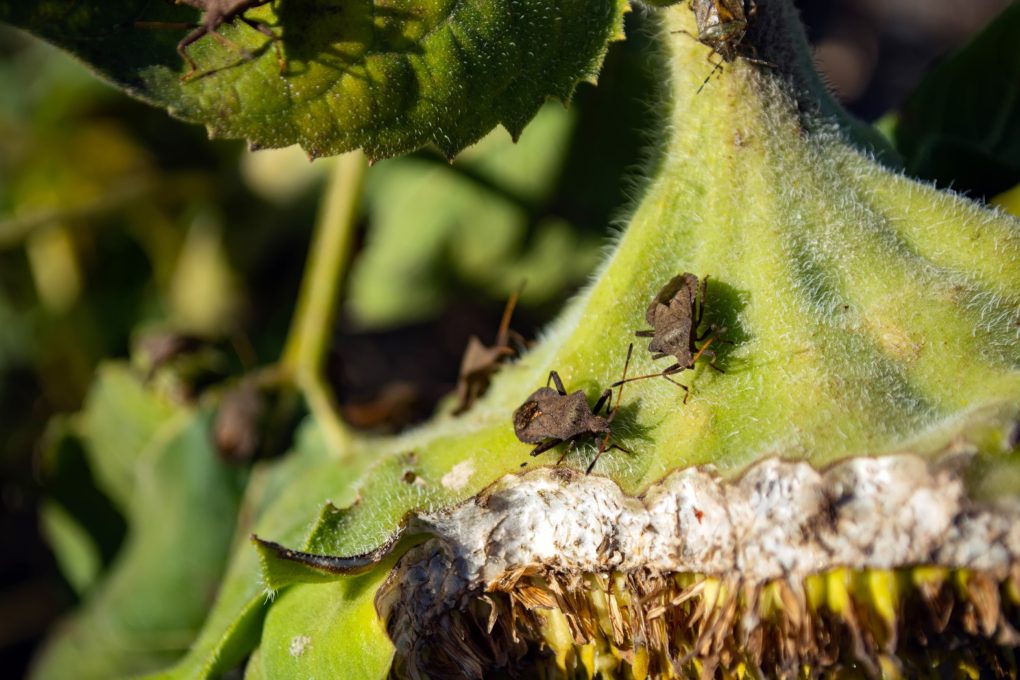Sunflowers in Clay Soil: Growing Tips and Tricks
Sunflowers can grow well in clay soil, but the conditions must be managed properly to avoid potential problems. Clay soils tend to be heavy and compacted, making it difficult for sunflower roots to grow and absorb nutrients. However, with proper management, sunflowers can thrive in clay soil.

One way to improve clay soil for sunflowers is to add organic matter. This can help to loosen the soil and improve its structure, allowing for better root growth and nutrient absorption. Adding compost, aged manure, or other organic amendments can help to improve soil structure and fertility.
Another important consideration when growing sunflowers in clay soil is water management. Clay soils hold water for longer periods, leading to soggy conditions that can harm sunflowers. To avoid this, it is vital to ensure good drainage and to avoid overwatering.
Table of Contents
Tips for Growing Sunflowers in Clay Soil
While sunflowers prefer rich, well-drained soils, they can still thrive in clay soil with the right care and attention. Here are some suggestions for growing sunflowers in clay soil:
Add Organic Matter
Adding organic matter to soil is a great way to improve soil health and fertility. Organic matter comprises decomposing plant and animal materials, such as leaves, grass clippings, kitchen scraps, and manure. When added to soil, organic matter can help improve soil structure, increase water retention, and provide plant nutrients.
To add organic matter to your soil, you can use a variety of methods, such as:
Composting: Composting breaks down organic matter into a nutrient-rich soil amendment: compost kitchen scraps, yard waste, and other organic materials in a compost bin or pile.
- Cover cropping: Cover crops are planted to improve soil health and fertility. They are typically grown in the fall or winter and are then tilled into the soil in the spring. Common cover crops include clover, rye, and buckwheat.
- Adding manure: Adding well-aged manure to soil can help to improve soil fertility and structure. Manure can be purchased from a local farm or garden center or you can make your own if you have livestock.
- Vermicomposting: According to CalRecycle, vermicomposting is composting with worms. Worms break down organic matter into a nutrient-rich soil amendment called worm castings, which can be added to soil to improve fertility.
Choose the Right Variety

Choosing the right variety of sunflowers for clay soil is important to ensure the plants can grow and thrive. While sunflowers are generally hardy and adaptable, some varieties may perform better than others in clay soil. Here is some information for selecting the best sunflower species for clay soil:
- Look for varieties known for their tolerance to heavy soil, such as ‘Russian Giant’, ‘Moulin Rouge’, or ‘Italian White’.
- Consider the height and size of the sunflower. Some types can grow up to 12 feet tall, while others are more compact. Choose a variety that is appropriate for the space you have available.
- Check the seed packet for planting instructions, including the ideal soil type and moisture requirements for the variety you are considering.
- Consider the bloom time of the sunflower. Some varieties bloom earlier in the season, while others bloom later. Choose a variety that suits your desired bloom time.
Monitor for Pests and Diseases
Monitoring for pests and diseases is an important part of growing sunflowers in clay soil, as pests and diseases can damage plants and reduce their overall health and productivity. Here are some tips for monitoring for pests and diseases in your sunflowers:

- Regularly check the plants for indications of damage, such as chewed leaves, wilted stems, or discoloration.
- Protect your plants from pests like aphids, caterpillars, or thrips by removing them manually or using organic pesticides.
- Monitor for fungal diseases, such as powdery mildew or rust, identified by white or yellow spots on the leaves or stems. These diseases can be treated with fungicides or removed by pruning affected parts of the plant.
- Keep the area around the sunflowers free of debris and weeds, which can harbor pests and diseases.
- Water the sunflowers at the base of the plant to avoid wetting the leaves, which can promote fungal growth.
Amending Clay Soil
Add compost or aged manure to grow sunflowers in clay soil to improve drainage and nutrient content. Add 2-3 inches of organic matter and work it into a depth of 6-8 inches for best results.
Using Raised Beds
Another option for growing sunflowers in clay soil is to use raised beds. Based on experience, raised beds can help improve drainage and provide better-growing conditions for the sunflowers. Suffice the raised bed with a mixture of topsoil, compost, and sand to create a well-draining growing environment for the sunflowers.
Watering
Clay soil can hold onto moisture for longer periods, which can be both a blessing and a curse for sunflowers. While keeping the soil moist is important, overwatering can lead to root rot and other issues. To keep your sunflowers healthy, water them deeply once a week. Ensuring the soil is slightly dry before watering it again is imperative.
Fertilizing
Clay soil tends to be nutrient-rich but can also be compacted and difficult for plant roots to penetrate. Adding a balanced fertilizer like a 10-10-10 or 5-10-5 can help give the sunflowers the nutrients they need to thrive. Proper flower growth requires following package instructions for fertilizer. Avoid over-fertilizing to prevent excessive foliage and fewer flowers.
Mulching
Adding a layer of organic mulch like straw, wood chips, or leaves can help regulate soil moisture and temperature, suppress weeds, and improve soil structure over time. Apply a 2-3 inch layer of mulch around the base of the sunflowers, being careful not to cover the stems or leaves. Reapply the mulch as needed throughout the growing season.
